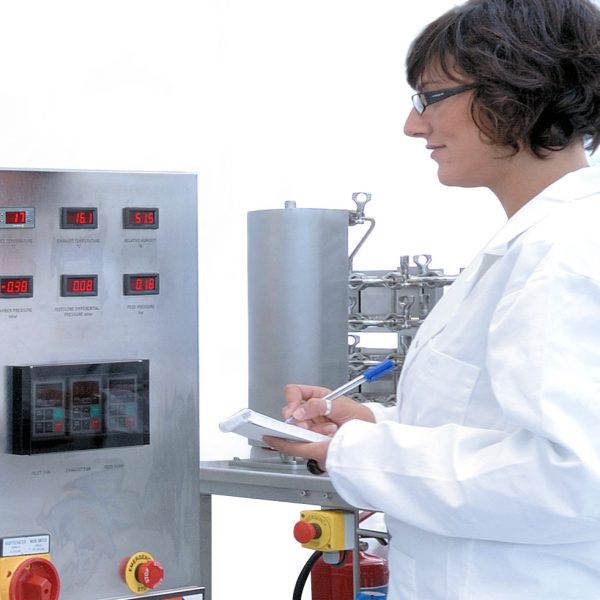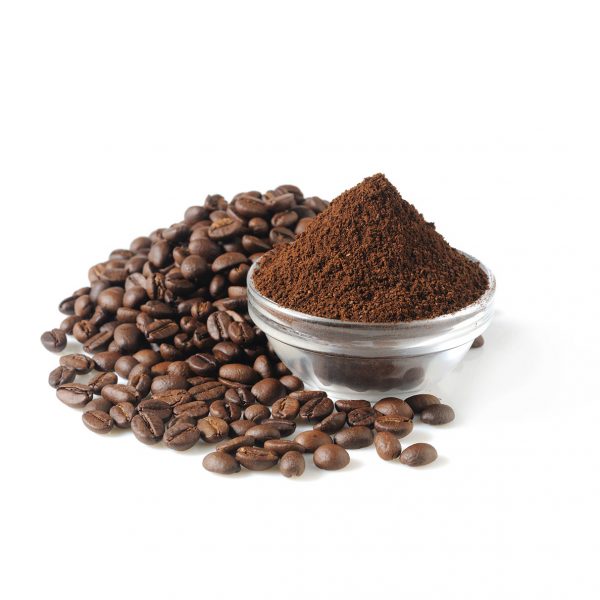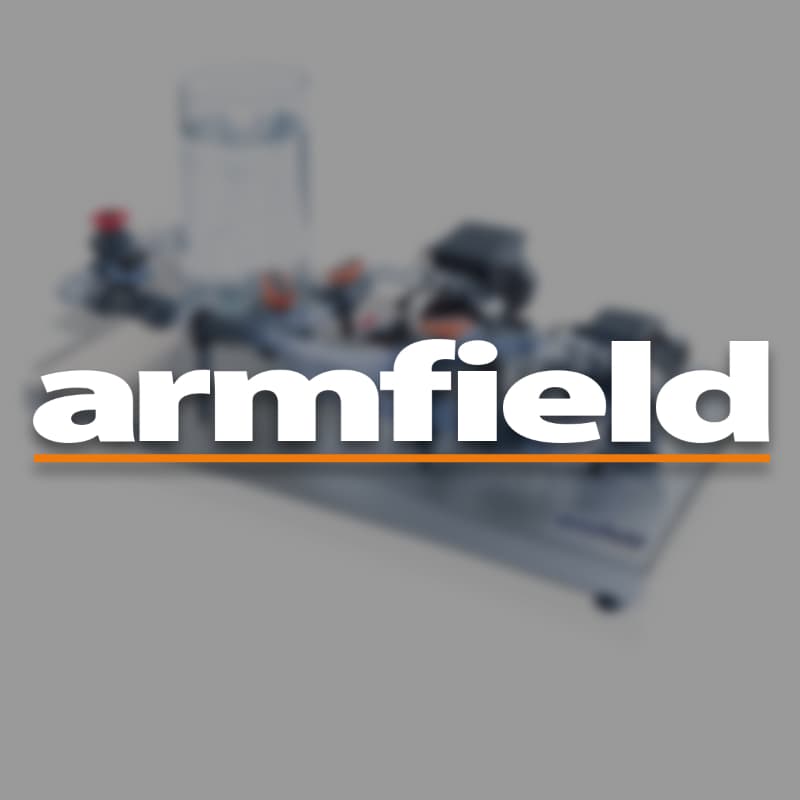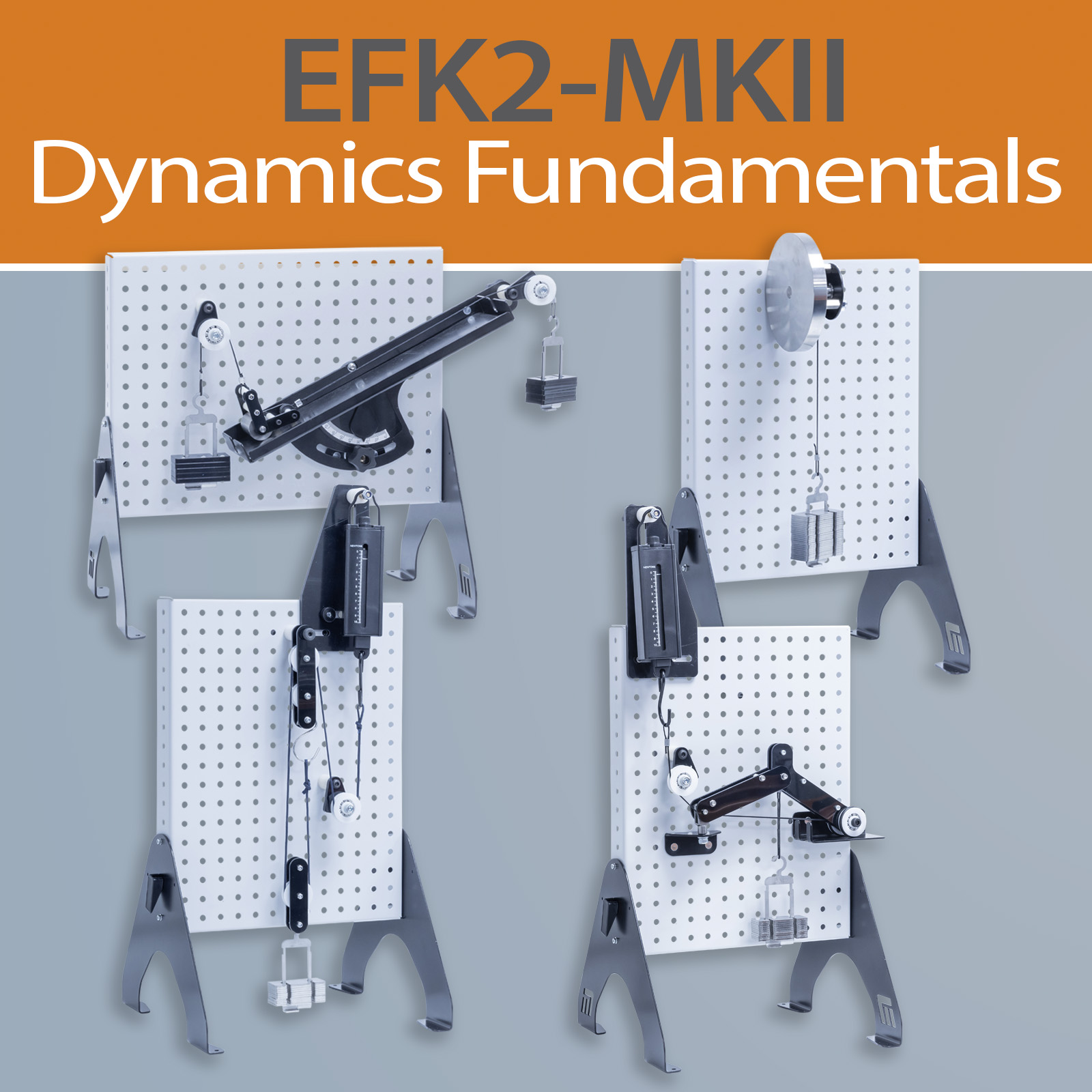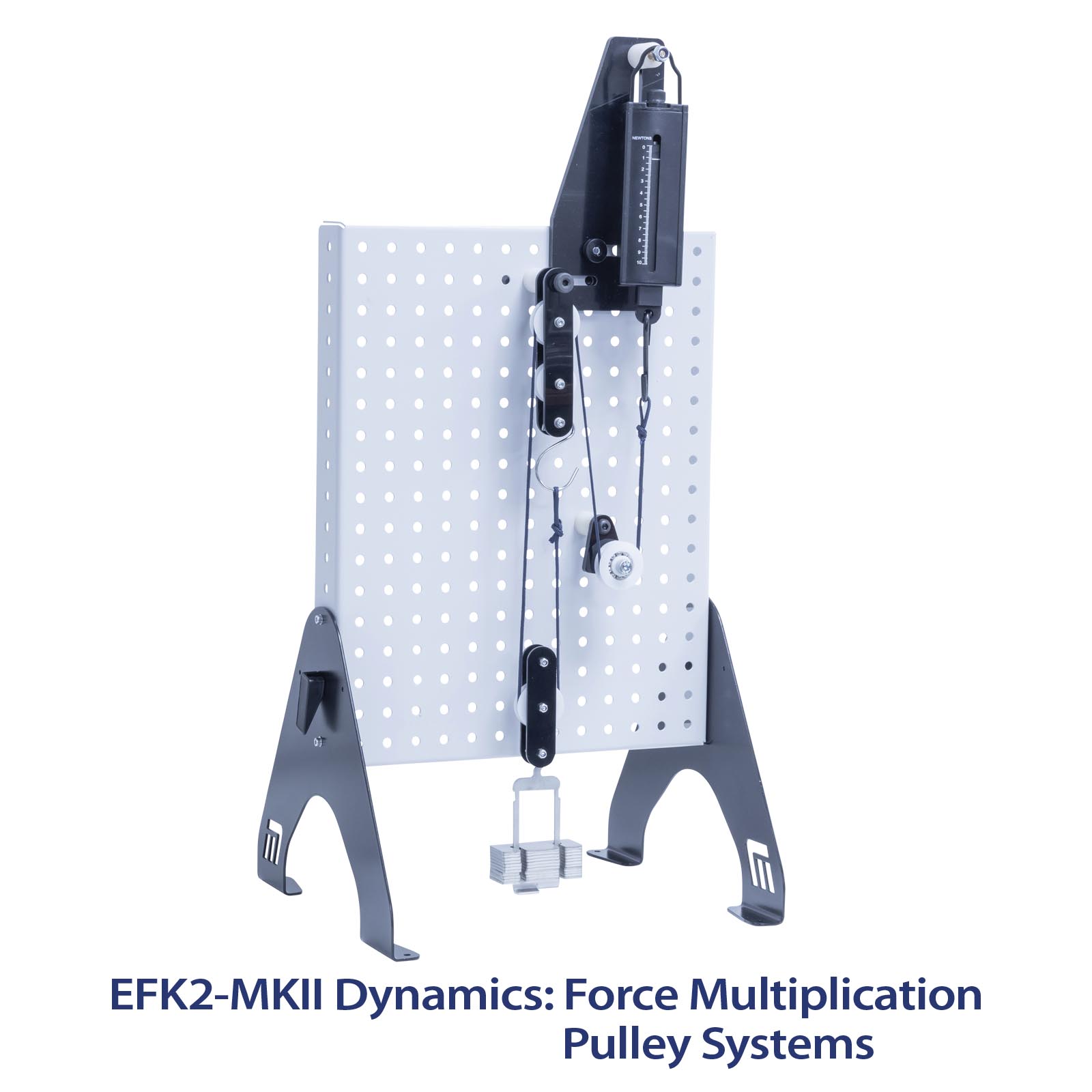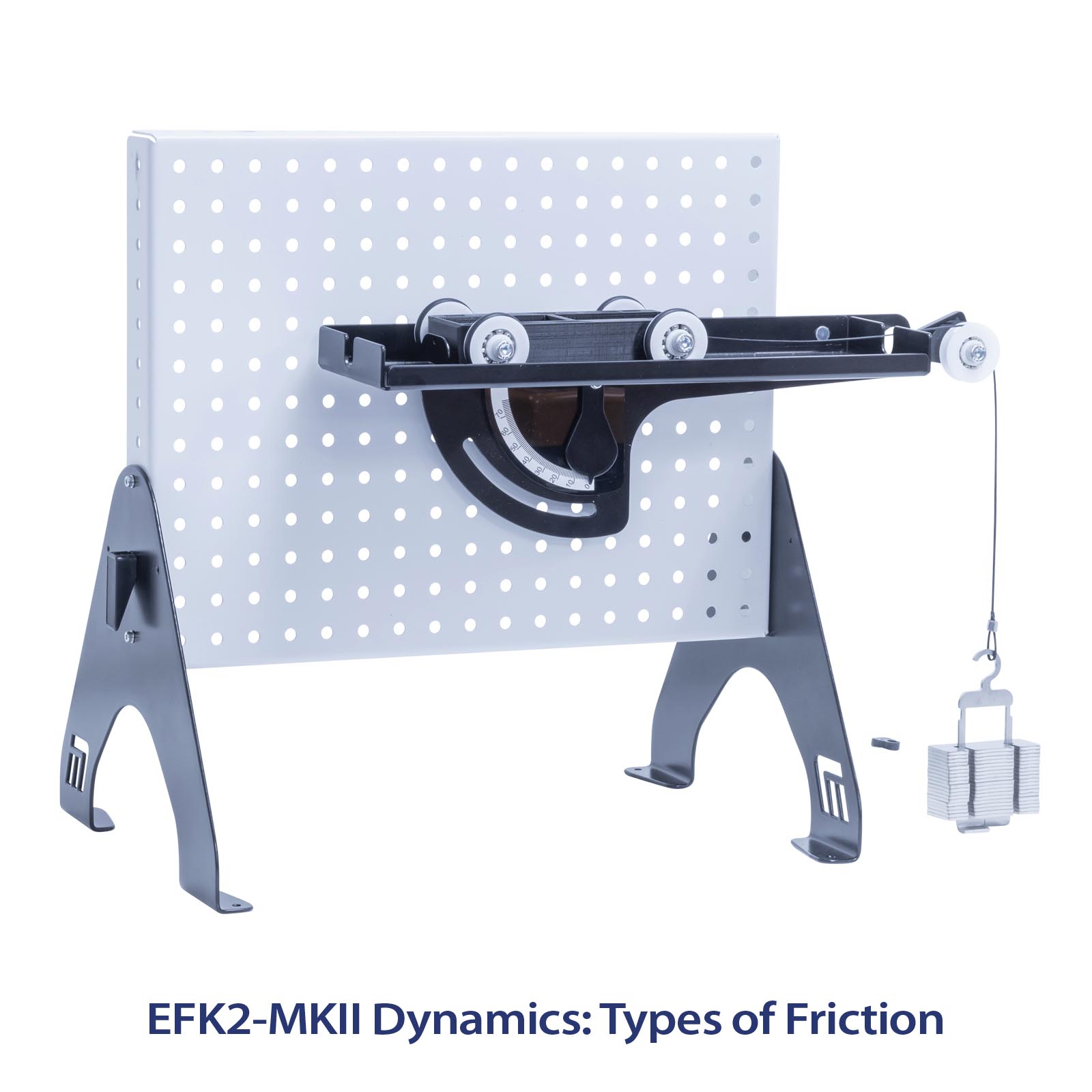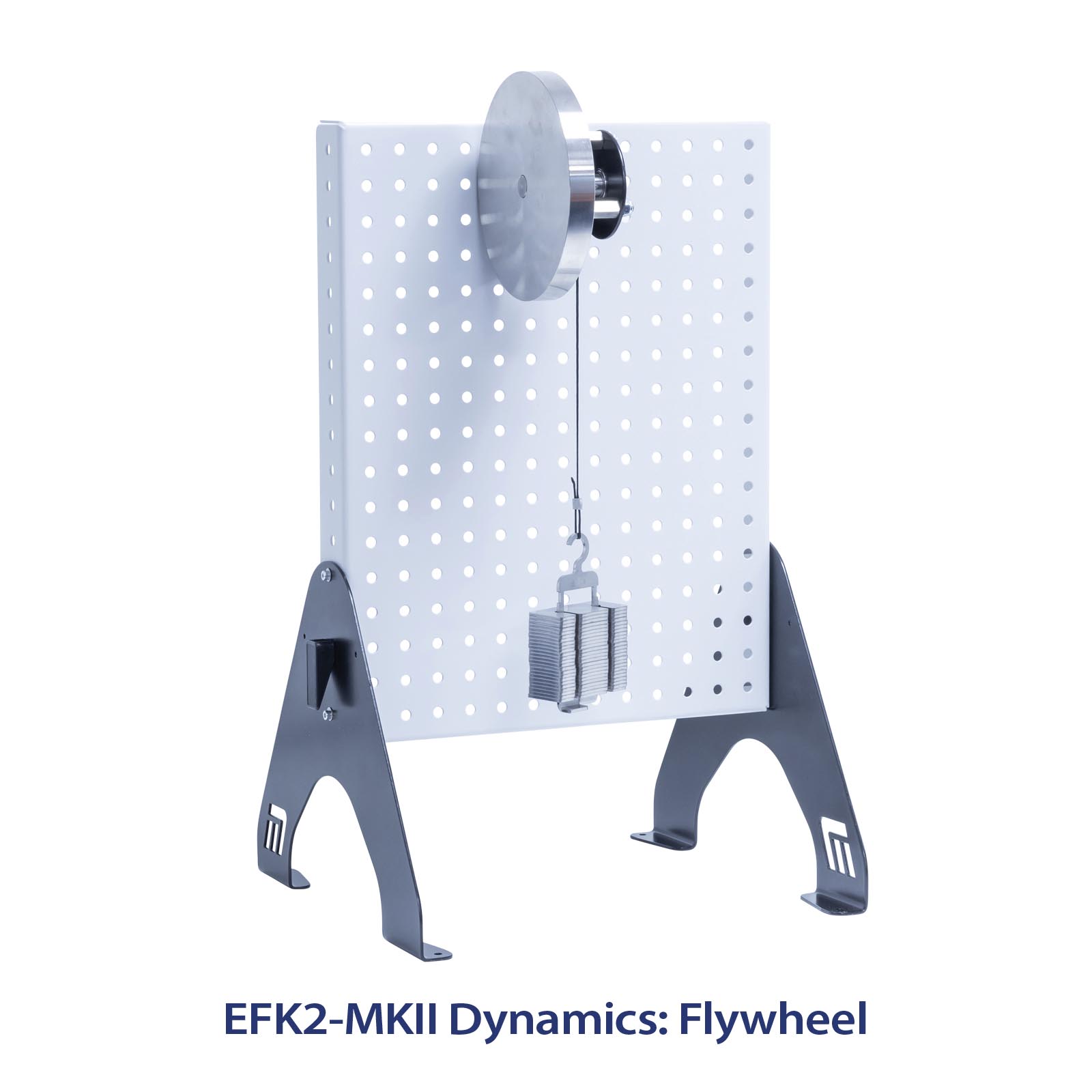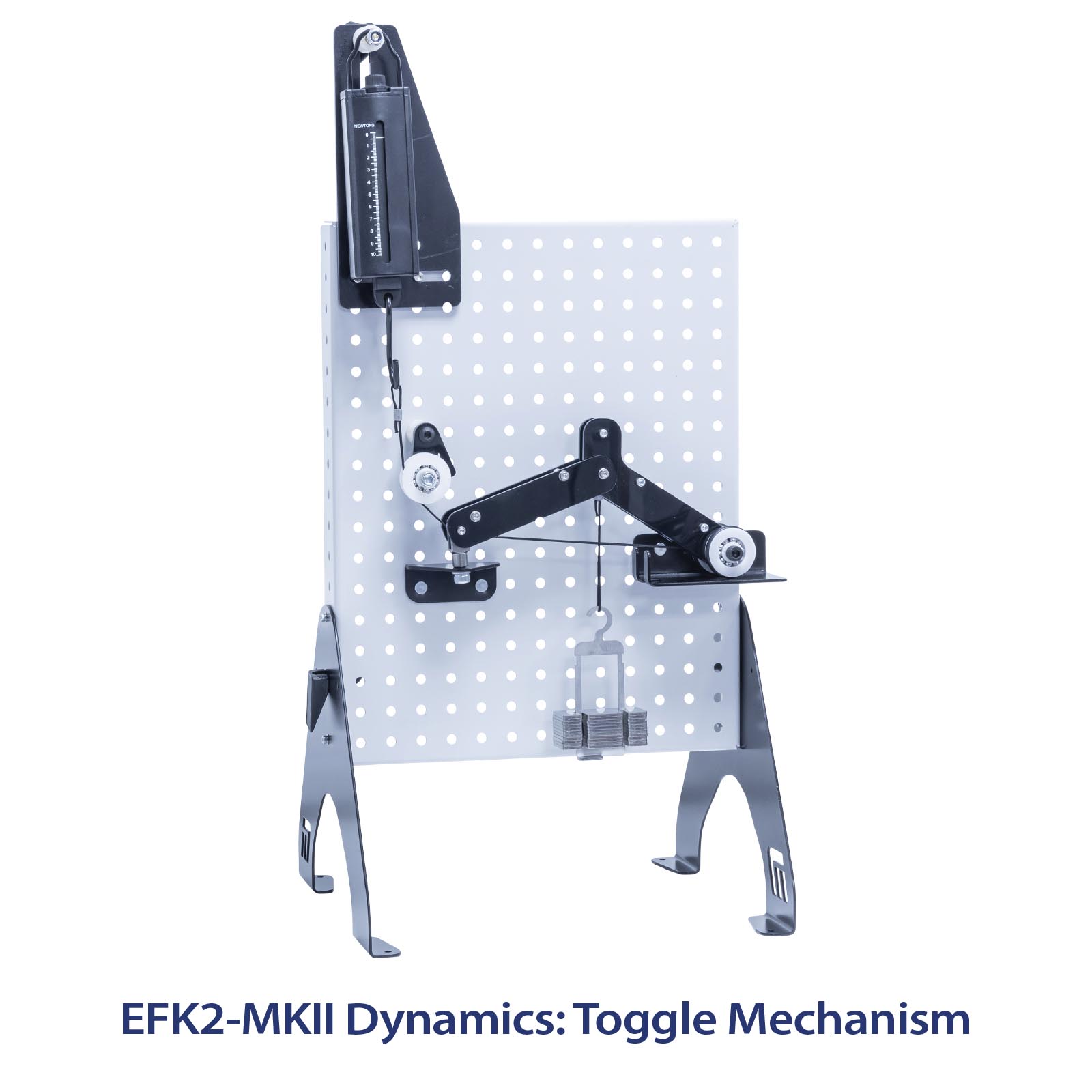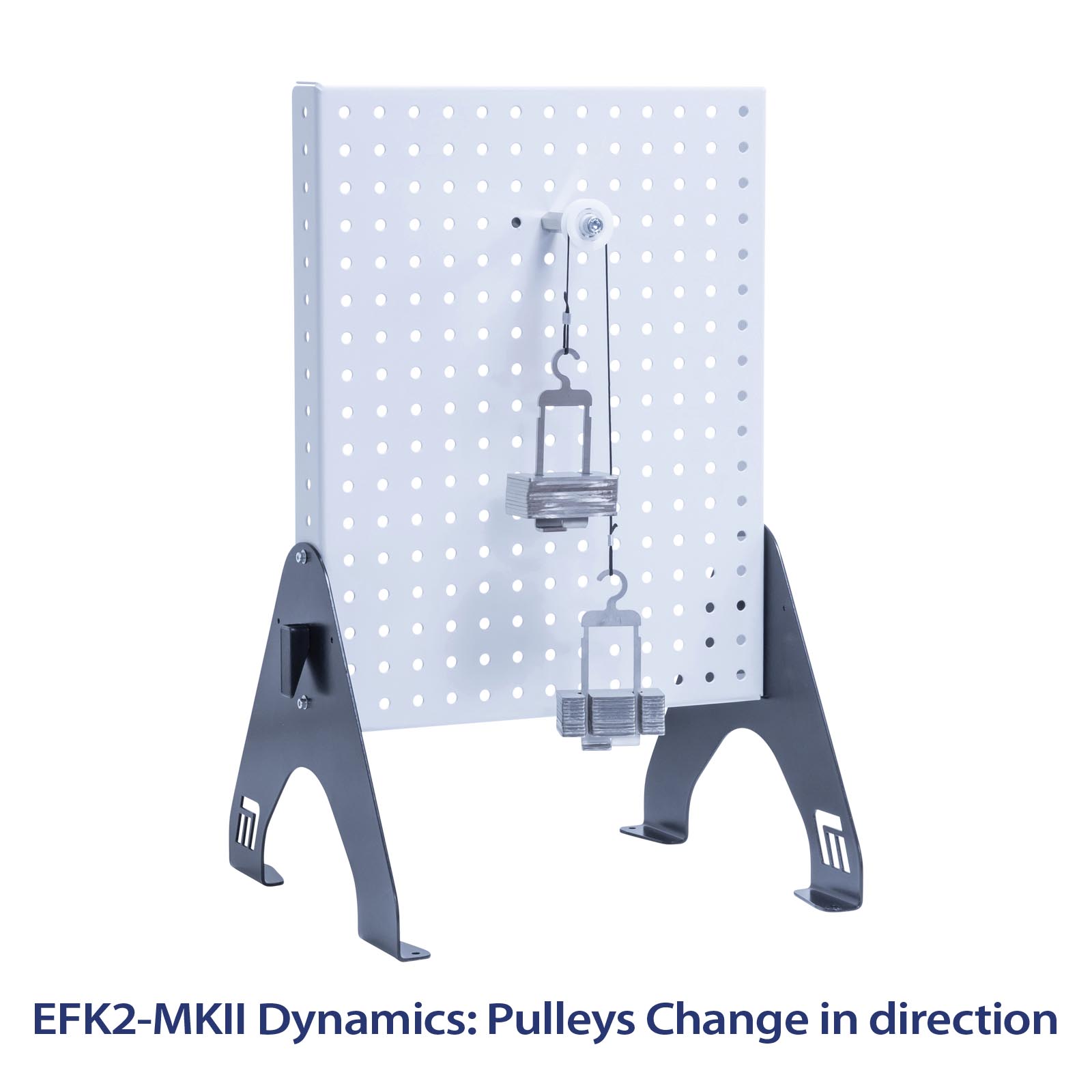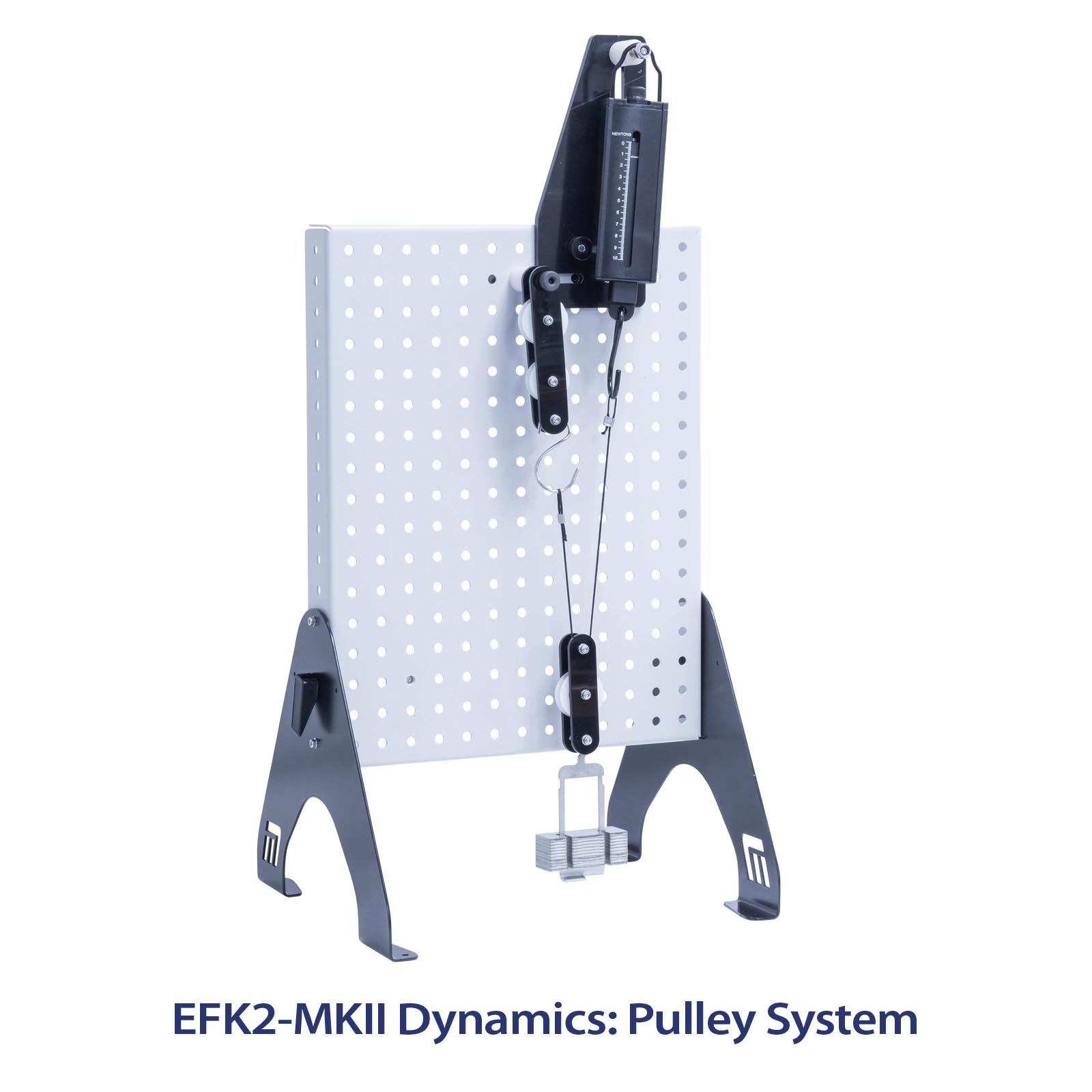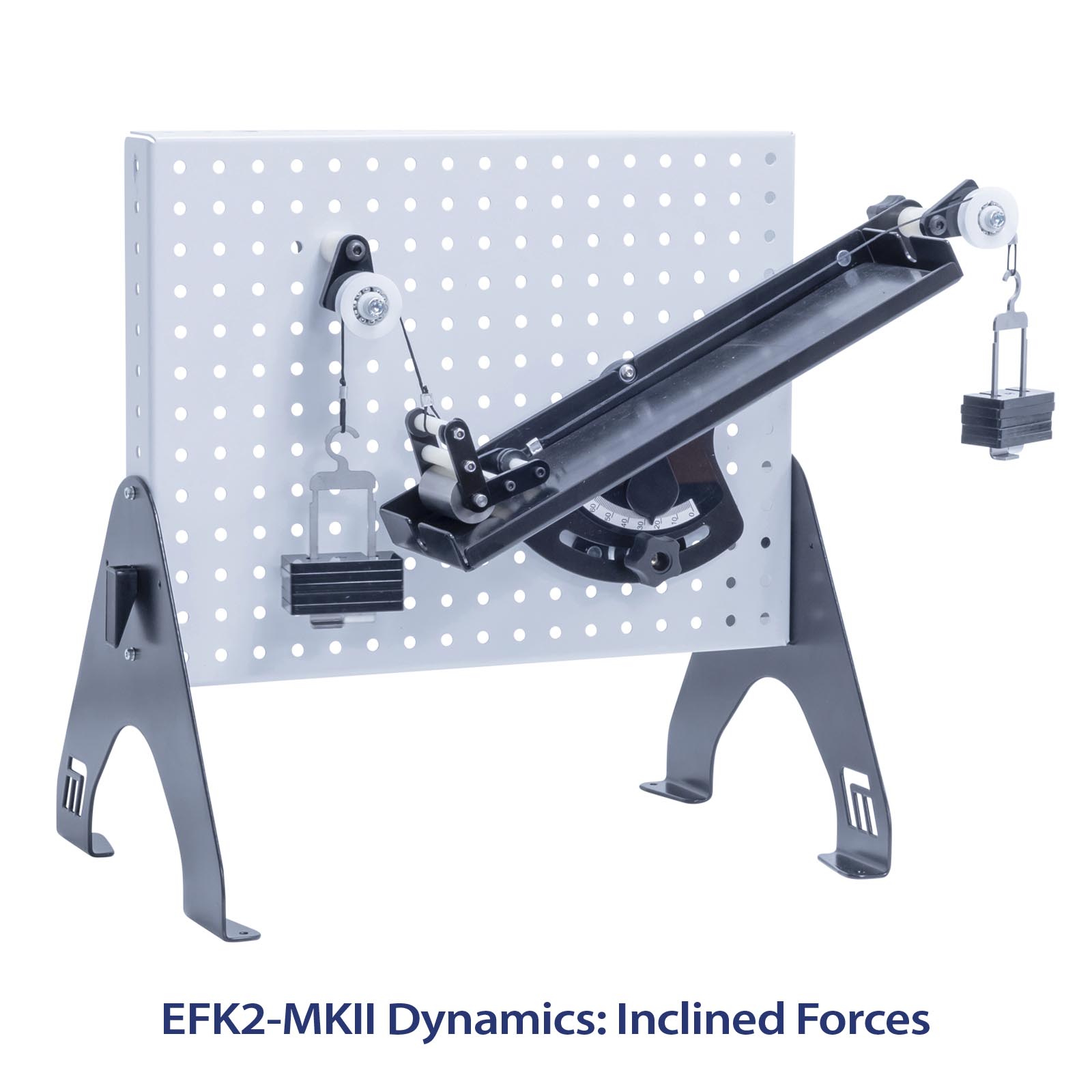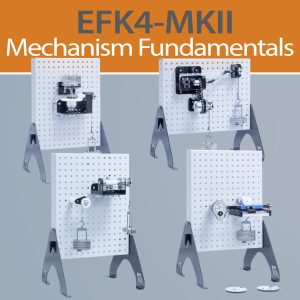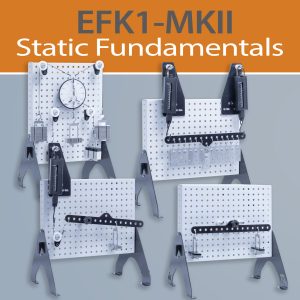EFK2-MKII Dynamics Kit
The Engineering Fundamentals EFK2-MKII Dynamics fundamentals kit is designed to enable students to gain an understanding of the fundamentals of engineering by the process of learning via hands-on experimentation.
Practical experience allows students to see the real-world application of theoretical knowledge, leading to a deeper and more comprehensive understanding of engineering principles.
The modular kit is supplied in conjunction with a multifunctional base unit enabling the student to conduct their own experiments in subjects such as Pulleys, Flywheels, Friction, Inclined planes, and Toggle Mechanisms.
Each kit is supplied with a highly visual user-friendly operational guide, enabling the student to understand the theory of the subject by the application of practical experimentation.
EFK2 MKII Dynamic Fundamentals Kit
Description
The Engineering Fundamentals EFK2-MKII Dynamics fundamentals kit is designed to enable students to gain an understanding of the fundamentals of engineering by the process of learning via hands-on experimentation.
Practical experience allows students to see the real-world application of theoretical knowledge, leading to a deeper and more comprehensive understanding of engineering principles.
The modular kit is supplied in conjunction with a multifunctional base unit enabling the student to conduct their own experiments in subjects such as Pulleys, Flywheels, Friction, Inclined planes, and Toggle Mechanisms.
Each kit is supplied with a highly visual user-friendly operational guide, enabling the student to understand the theory of the subject by the application of practical experimentation.
Bundled Learning For:
- STEM Education
- National Vocational Qualifications
- High Schools & Technical Colleges
- University Foundation Degrees
Topics Covered:
- Pulleys
- Flywheels
- Toggles
- Friction
- Inclined planes
Technical Specifications
- Tray friction plate large rough 1
- Salter 12 spring balance 10N x 0.1N 1
- Single Pulley Assembly 1
- Flywheel Assembly 1
- Friction assembly (rough surface) 1
- Balance Slider Plate Assembly 1
- Work Panel for Fundamentals 1
- 5g hanging weights 52
- Hanging Weights 2
- Toggle Assembly 1
- Adjustable Plate Assembly 1
- Single Parallel Pulley Assembly 1
- Double Pulley Assembly 1
- Inclined Plate Pulley Assembly 1
- RH Adjustable Pulley Assembly 1
- Spring Balance Pillar 1
- LH adjustable pulley assembly 1
- Looped String kit 1
- Friction assembly (wood) 1
- Toggle Travel Plate 1
- Inclined Tray Assembly 1
- 3D Printed Cart 1
- Friction assembly (stainless steel) 1
- Roller Assembly 1
- Plastic shallow tray BLACK 1
- Thin foam tray insert 355x270x5mm 3
- Tray Lid 2
- Deep tray 1
- Crash Foam 360mm x 260mm, thickness 25mm 3
- 62mm daughter tray 1
- Tray friction surface plate wood(large) 1
Features & Benefits
Features
- Neatly presented in an easily identifiable and durable storage tray
- Trays have clear lids making it easy to see their contents.
- Accompanied by a detailed manual, including Student handouts and teachers notes with various practical exercises.
- Clear and concise assembly instructions for each experiment
- Multiple experiments per kit
- Toolless assembly
Benefits
- Enhanced Understanding of Concepts
- Improved Problem-Solving Skills
- Engagement and Motivation
- Teamwork and Communication
Contains one of each of the EFK2-MKII dynamics Fundamentals Kit
EFK2-MKII Dynamics Fundamentals Kit
- EFK2-MKII Flywheel
- EFK2-MKIITypes of Friction
- EFK2-MKII Inclined Forces
- EFK2-MKII Pulley Systems
- EFK2-MKII Pulley systems change in direction
- EFK2-MKII Toggle Mechanism
- EFK2-MKII Force Multiplication Pulley Systems
- describe the energy changes that take place when a falling weight causes a flywheel to rotate.
- use a value for gravitational field strength to calculate the weight of a given mass.
- explain the meaning of the following terms:
- torque
- moment of inertia.
- angular velocity.
- angular acceleration.
and identify the corresponding quantities in linear motion.
- use a graph of torque vs angular acceleration to obtain a value for the moment of inertia.
- use the formula I = ½ (M. R²) to calculate the moment of inertia of a flywheel.
- use the formula Ep = m. g. x to calculate the loss in gravitational potential energy of a falling mass.
- use the formula Ek = ½ (I.Ꞷ) to calculate the kinetic energy of a spinning flywheel. Resolve a given force into two perpendicular components.
- use given information on horizontal, vertical, and oblique forces to determine whether a beam is in equilibrium.
- distinguish between static and sliding friction.
- describe an experiment designed to measure both the static and sliding frictional force between two surfaces.
- explain why gently tapping the bench improves the accuracy of a measurement of sliding friction.
- use the formula µs = frictional force / normal force to calculate the coefficient of static friction.
- use a graph of frictional force vs normal force to obtain a value for the coefficient of static friction.
- resolve a force into two perpendicular components using Rn = W cos Ø and Rp = W sin Ø
- use the formula µk = tan Ø, where Ø is the minimum angle at which the cart slides down a slope to calculate the coefficient of sliding friction.
- describe an experiment to measure the normal and parallel components of the weight of an object on an inclined plane.
- describe two reasons why using a pulley could assist with moving an object.
- explain the meaning of the following terms, relating to pulley systems:
- mechanical advantage.
- velocity ratio.
- energy efficiency.
- describe an experiment to measure the mechanical advantage of a pulley system.
- describe the effect of multiple pulleys on the energy efficiency of the system.
- explain the meaning of ‘snapping’ in relation to a toggle mechanism.
- describe an experiment to measure the force needed to make a toggle mechanism ’snap’,
- identify three practical applications of toggle mechanisms.
- EFK1-MKII Statics Fundamentals Kit
- EFK4-MKII Mechanism Fundamentals Kit
- EFK6-MKII Materials Fundamentals Kit
Tray Dimentions
Tray 1:
Length: 0.430m per tray
Width: 0.21m per tray
Height: 0.08m per tray
Tray 2:
Length: 0.430m per tray
Width: 0. 21m per tray
Height: 0.24m per tray
- EFK2-MKII



